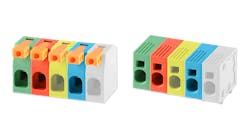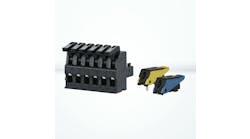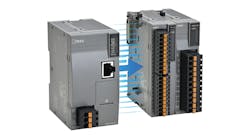I've always been a little stunned when I hear my fellow citizens blaming local, county, state and federal government bodies for taxing, passing ordinances and otherwise victimizing them. It might be because I sat in on so many municipal meetings, but it taught me there is no "other" doing nefarious things. It's only us. The difference is, there's a few people who attend public meetings, make their voices heard and alter public policy and expenditures, and then there's the vast majority, who stay at home, watch TV and complain.
Want to reduce that tax bill? Don't wait for it. Go to the budget meetings of your local taxing bodies. I promise every elected office will sit up straighter, and you can have real input into whatever goofy purchases they shouldn't be making.
The same proactive approach holds true for how to handle the increasing digitalization going on in the process industries. If you wait for an unexpected trip or shutdown, or just buy some sexy software or box without evaluating it, you're likely going to be as disappointed as that lethargic and unhappy taxpayer. However, if you get out and about, and do some investigating into initiatives like the Open Process Automation Forum (OPAF) and its quest for an open, interoperable process control standard, then the odds are much better that you're going to find what you need.
Heck, some end users aren't even waiting for OPAF. For example, Abdullah Alkhalifah, senior engineering consultant in Saudi Aramco's Engineering Services, Process and Control Systems Department, reports his company has sought to alleviate increasing obsolescence in its automation systems and networks since 2010.
"Our objective is to provide inherent mechanisms in the automation system for upgrades and partial replacement of any obsolete components with best-in-class hardware and software without having to do a complete system replacement during the expected lifecycle of our processing facilities," explains Alkhalifah, who also presented at the ARC Industry Forum. "Our proposed concept for this is moving from a typical network-centric process automation system (PAS) architecture to a data-centric architecture such as OPA that physically and logically decouples the I/O racks from the main control module, converts them into distributed, autonomous process interface systems, and relocates them to field junction boxes.The main control module is then replaced by a standard server-based controller running in a standard, real-time (RT), operating system (RTOS) environment, which will be empowered by a RT, reliable, fault-tolerant, publish/subscribe data messaging framework such as data distribution service (DDS) middleware."
Alkhalifah reports that Saudi Aramco's main requirements for a data-centric PAS include an open, standard, publish-subscribe communication protocol; RT data bus; virtualization of servers, HMIs and controllers; high-availability computing platform; interchangeable I/O; hardware and/or software-based controllers; built-in cybersecurity; and applications portability. In fact, he adds that Saudi Aramco started building an open, data-centric, OPA-style prototype two years ago, and is on target to finish it this year.
"We want to make sure we have built-in support for open interfaces in the future," says Alkhalifah. "Our existing I/O must work with our vendor's embedded, open interfaces, so we can make replacements as needed. With an open-bus system like OPA, any pieces that become obsolete can be replaced. We also learned about and joined OPAF at this time. However, as we've done this work, we found it wasn't as simple as we thought. Our team had to spend a lot of hours setting up information models and structures, and that added work was needed before combining everything. Still, we're committed to working with OPA because we believe in publish/subscribe networking, and we can use commercial, off-the-shelf (COTS) devices."
See? Just a little get up and go is all it takes to let go of "them," and make progress as us.






